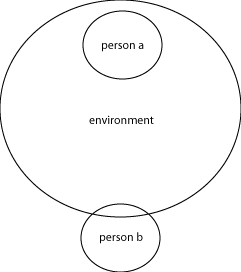NevOn, my new favourite communications blog posts a good run-down on the Mark Jen ‘getting fired for blogging by Google’ event quoting some great sources and wrapping it up nicely with:
“Employees – Use your own common sense on what you say about your employer and issues in your workplace in your public blog. The responsibility for this is yours, as are the consequences if you don’t use your common sense.”
Which I agree with wholeheartedly. I visited Mark Jen’s site a while back and couldn’t help but think “Wow, he’s just started there and he’s really getting into them!” and it made me think of my own experience a few months back when I felt compelled to blog about something that was happening to me at my workplace (and which, too this day, the support you guys gave me blows me away so much I can hardly read the comments, 100 with this pingback!)
I wrestled with that decision for at least a week. I mean crikey, I had a .pdf of the memo, ready to be posted, I was seriously stressed out and pretty angry too… but in the end I figured that what this basically came down to was insecurity and paranoia (in certain areas of management) and, to a fair extent, probably a clash of ideas and personalities. Also, I work for a pretty cool institution, and regardless of their choice CMS-wise, there are amazing teachers here, wonderful (and often long suffering :o) people who love their students and their jobs. Add to that the fact that the main protagonist didn’t really get the idea of ‘academic freedom’ (he/she’s not one) and me lashing out at my organisation, or ‘lashing out’ at all = probably not a good idea.
But I felt like I couldn’t go on with writing here, or even working as I do, if I didn’t say something about it. I guess once you’ve been doing this kind of thing for a bit (about a year and a half when all of that happened) you can’t write happy when you’re not or avoid saying how you feel / recounting professional experiences and keep on going. Add to that the fact that the people reading this are by far the most important professional community I’ve ever had and I felt I had to write something. I couldn’t have gone on without doing so I think.
So, I figured that the only way I could do this was by making myself institutionally-anonymous, by not going into the arguments (too much) and by talking about my stress rather than thrashing out angrily. I think I managed that and in doing so I didn’t hurt my organisation unfairly or unnecessarily, I didn’t fight fire with fire (not a good idea with paranoia and insecurity!) and I was able to express myself honestly to my community.
I even had a chance to reconsider a month or two back when I was approached by a major national paper to run a story on it (I guess it’s not too hard to find out where I work, oops) … but that didn’t happen for the same reasons.
So, the way I see it is that you’re stoopid and a bit ethically unsound to start slagging of the organisation you work for in a public forum, certainly in an unconstructive / unbalanced way, as if you really are that unhappy you should probably take it up with your union / H&S / police force / get a new job (in the first instance at least). I’d love to be able to blog about my workplace, about the many things that I love doing (as well as a balanced opinion of the things I don’t), and maybe I will be able to one day… but in the meantime nobody gains from stuff that it makes ‘common sense’ not to say.
So the main thing to do is to figure out what ‘common sense’ is in a policy sense, as Neville says:
“Employers – You must establish the framework under which employees can blog in their workplace, creating the guidelines that make it clear what the ground rules are, and then communicating them to your employees in a way that they clearly understand. The responsibility for this is yours, as are the consequences if you don’t have clear guidelines.”
And I think that’s something I’d really like to work on, if anyone out there is interested. Perhaps there’s the opportunity for a kind of standard ‘approach’ that you can tell your boss you adhere to, an opt-in ‘code of conduct’. With lots of signatories. That’d be useful. It’d give me something to bring up when the question of me blogging comes up in a job interview, wouldn’t it? A bit like Creative Commons solves all my licensing issues easily.
Or would it be an annoying, unnecessary, dangerously ‘norming’ and a waste of time?
I ‘ve always liked the Ten Reasons Why Editorial Policy (& part 1 with comments) but that is definitely steered more towards the technical / flat rights.
Here are some other examples of codes of ethics:
Blogging policy examples – Charlene Li (and on a wiki: ethics / sample policies)
A much earlier reflection by Ray Ozzie
Here’s the Sun Policy – an interesting read
Richard Giles with an interesting corporate blogging presentation that touches on this (from the Perth Blognite)
Anyone know any others, is there a Cluetrain-esque ‘blogging constitution’ out there?
 Heh :D via
Heh :D via 
